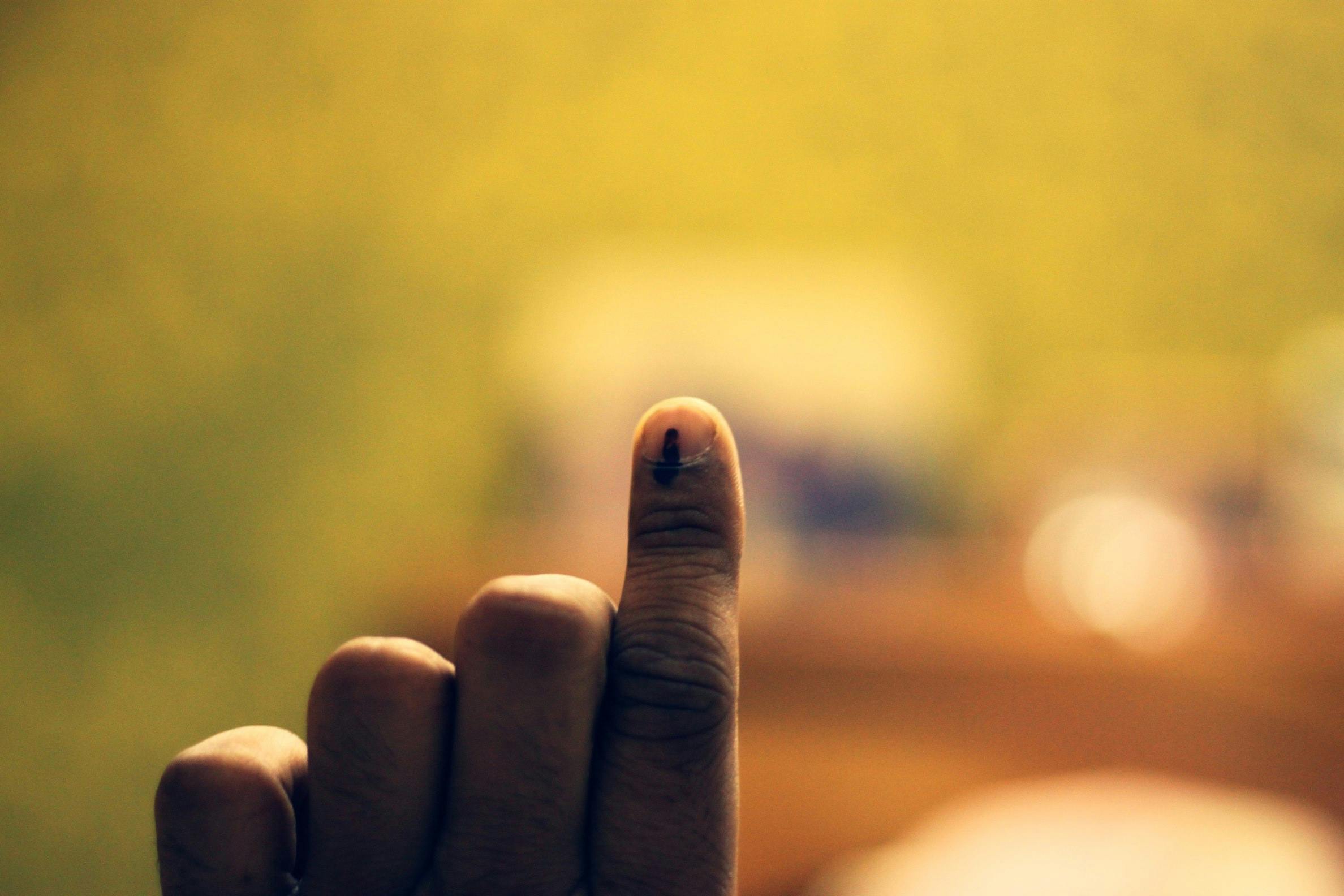The Government’s ‘One Nation One Election’ Plan
The idea behind this new plan is to hold the Lok Sabha and the state elections at the same time.
A person showing their election mark. Photo by Wikimedia Commons / CC BY 2.0
Anamitra Swarupa • 6 Sep, 2023 • 5 Min
CEFR A2 (Easy)
